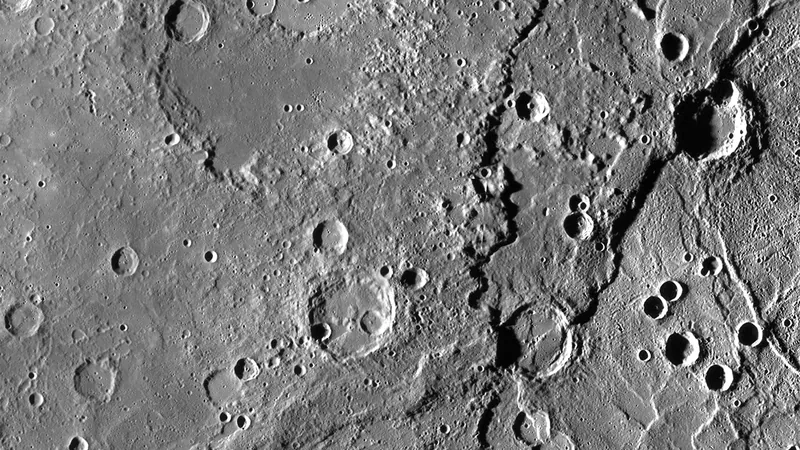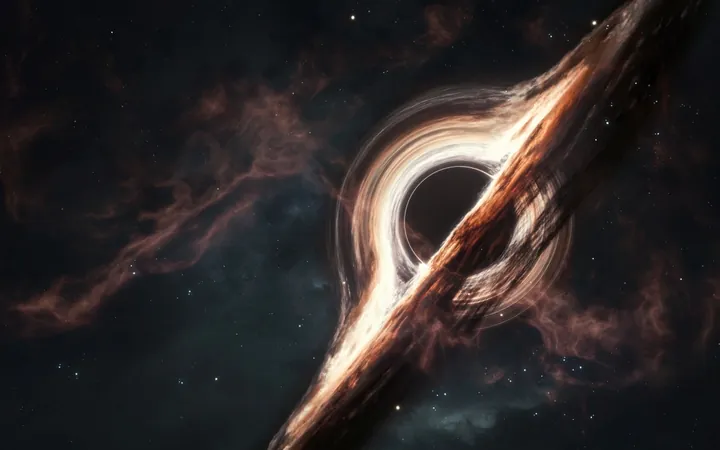
Mercury's Mysterious Shrinkage: A Planet in Distress!
2025-08-17
Author: Noah
What Does Mercury Have in Common with Cookies?
Just like a freshly baked cookie fresh out of the oven, Mercury is undergoing a fascinating transformation as it cools. This rocky planet has been slowly contracting since it formed around 4.5 billion years ago, losing heat and altering its structure!
The Cracking Surface of Mercury
As Mercury cools, it doesn’t just shrink—it cracks! Thrust faults zigzag across its surface, revealing the tumultuous history of this celestial body. These cracks provide valuable clues to scientists eager to understand how much the planet has changed.
Estimating Mercury's Shrinkage: A Scientific Puzzle
Despite ongoing research, estimates of Mercury's shrinkage have varied dramatically, with some suggesting a decrease in radius of anywhere from 1 to 7 kilometers. So, how do scientists determine the true extent of this contraction?
A Revolutionary New Method!
To clarify the confusion, researchers Loveless and Klimczak introduced a game-changing method for estimating the shrinkage caused by cooling-related faulting. Unlike previous approaches, which depended heavily on the number of faults in the data, their new method measures the impact of the largest fault and scales it up to gauge total shrinkage.
Crucial Findings Unveiled
When they analyzed three different datasets of faults—5,934, 653, and 100 faults—they consistently found that Mercury's radius has shrunk by about 2 to 3.5 kilometers. When adding in potential shrinkage from other cooling processes, the new estimation places Mercury's total contraction at approximately 2.7 to 5.6 kilometers since its formation!
Implications for Understanding Mercury and Beyond!
These revised estimates offer vital insights into Mercury's long-term thermal history, shedding light on its evolution. Furthermore, the methodology could revolutionize how scientists study tectonics on other planets, including Mars, where similar fault lines may be present.
Stay Tuned!
This groundbreaking research has been published in AGU Advances, and it opens up a world of possibilities for planetary science. Just like the shrinking planet Mercury, our understanding of the cosmos is evolving!









 Brasil (PT)
Brasil (PT)
 Canada (EN)
Canada (EN)
 Chile (ES)
Chile (ES)
 Česko (CS)
Česko (CS)
 대한민국 (KO)
대한민국 (KO)
 España (ES)
España (ES)
 France (FR)
France (FR)
 Hong Kong (EN)
Hong Kong (EN)
 Italia (IT)
Italia (IT)
 日本 (JA)
日本 (JA)
 Magyarország (HU)
Magyarország (HU)
 Norge (NO)
Norge (NO)
 Polska (PL)
Polska (PL)
 Schweiz (DE)
Schweiz (DE)
 Singapore (EN)
Singapore (EN)
 Sverige (SV)
Sverige (SV)
 Suomi (FI)
Suomi (FI)
 Türkiye (TR)
Türkiye (TR)
 الإمارات العربية المتحدة (AR)
الإمارات العربية المتحدة (AR)